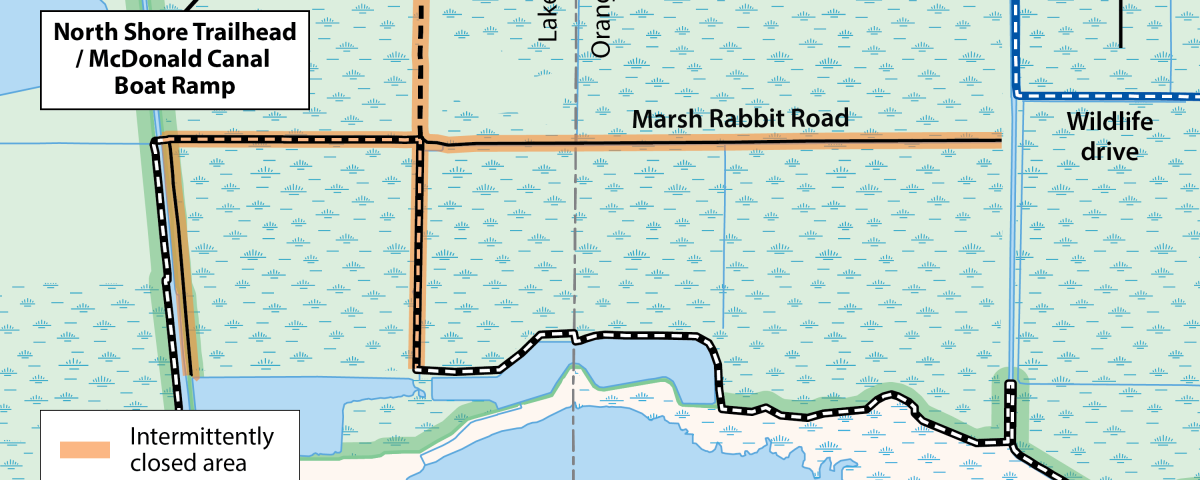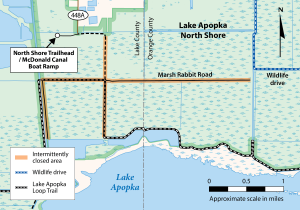Construction begins this week on Lake Apopka water storage improvement project

A project starting this week will raise internal levees at Marsh Rabbit and North-South roads to reduce phosphorus reaching Lake Apopka. Portions of the Loop Trail will be closed intermittently during construction. The Wildlife Drive will not be affected.
Anticipate intermittent closures of the Loop Trail; Wildlife Drive is unaffected
MAITLAND, Fla., Dec. 17, 2020 — Construction will begin this week on the Lake Apopka Duda Property Water Storage Improvement Project to improve water management abilities and reduce phosphorus loading to Lake Apopka through infrastructure improvements. Portions of the Lake Apopka Loop Trail will be intermittently closed to all public access during construction to raise internal levees. The public’s use of the Lake Apopka Wildlife Drive will not be affected by the construction.

A project starting this week will raise internal levees at Marsh Rabbit and North-South roads to reduce phosphorus reaching Lake Apopka. Portions of the Loop Trail will be closed intermittently during construction. The Wildlife Drive will not be affected.
The project involves raising internal levee heights and constructing hydraulic improvements, such as sumps, culverts and slide gates, to separate the Duda property into four cells in which water levels can be independently managed. This work will allow additional water to be stored on the property, which will reduce pumped discharges and nutrient loads to Lake Apopka.
The North Shore levee system not only serves as a separator between Lake Apopka and the North Shore but is also part of the District’s recreational Loop Trail. The Loop Trail follows the lake’s edge through the property, covering more than 20 miles and providing hiking and biking opportunities.
During project construction, portions of the Loop Trail on Marsh Rabbit and North-South roads will be closed to all public access intermittently as needed Monday–Saturday. Signs will be posted. Work is scheduled to be complete by the end of July 2021.
This important water resource protection project will enhance the lake’s improving water quality by storing more water on the North Shore and improve the recovering wetlands’ habitat value. The project’s estimated total phosphorus load reduction to Lake Apopka is 390 pounds per year.
Since the late 1980s, the District’s work at Lake Apopka has resulted in phosphorus reductions of 64% while water clarity has increased by 55%. The recovery of clearer water and return of sunlight to the lake’s bottom has caused the regrowth of submerged aquatic vegetation, missing for 50 years, and critical to the continued increases in largemouth bass habitat.
To learn more about water quality improvement projects at Lake Apopka, visit www.sjrwmd.com/projects/#lake-apopka.

